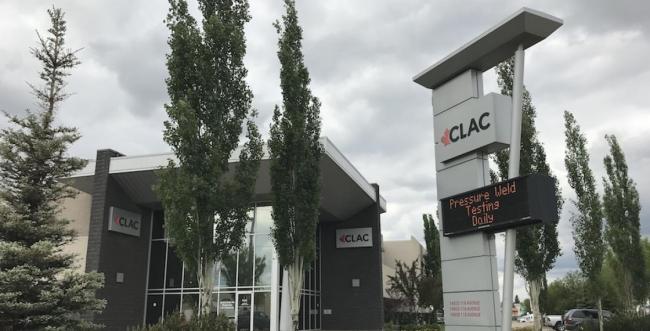Articles Menu

If Canadians are going to have to pay the $10 to $15-billion cost of expanding the Trans Mountain pipeline, it's important they aren't bound by side deals that are not in the public interest made by the project's former corporate owner.
When Kinder Morgan Inc. was masterminding the controversial megaproject to expand the pipeline so it could carry diluted bitumen from Alberta's oilsands to the West Coast, it was understandable that few Canadians paid much attention to how the Texas corporation managed its affairs.
But now that the project has been declared a matter of national interest so vital it must be taken over and run by the government of Canada, backstopped by the government of Alberta, all that has changed. And it is quite clearly not in the public interest that the bulk of the work on the project be done by members of the so-called Christian Labour Association of Canada, colloquially known as CLAC.
To say CLAC is controversial in labour circles is an understatement. It is reviled. It is seen in many circles as a "sweetheart union" at best, set up to serve management, not members.
Whether or not this characterization is fair, it is certainly true CLAC has been the go-to bargaining agent for corporations looking to keep traditional unions off their premises and a favourite of right-wing provincial governments like those of the Saskatchewan Party, the former Alberta Progressive Conservatives and the Liberal Party of British Columbia.
According to a handout on CLAC published by the Saskatchewan Federation of Labour, the organization has no constitutional requirement for a membership ratification vote on newly negotiated collective agreements, has been known to conduct ratification votes on new contracts before a wage schedule has been negotiated, and has accepted voluntary recognition agreements by employers to thwart organizing drives by traditional unions. According to the SFL, CLAC also works with union-busting organizations hired by anti-union employers.
Alas, CLAC's Wikipedia page won't help a reader much with these questions as it appears to have experienced the hand of a CLAC-friendly editor.
Nevertheless, it's troubling to learn -- by way of a CLAC news release welcoming the federal and Alberta governments' plans for the TMX -- that "CLAC signatory contractors have been awarded the vast majority of the work" on the project. Moreover, the release says, CLAC expects to see more than 4,000 of its members working along the line during construction.
As an aside, it's interesting to see how widely at variance CLAC's estimate of how many of its members will be employed in actual construction is with other estimates that are being bandied about -- for example, 14,600 construction jobs.
Regardless, whatever you may think of CLAC, it is clearly not in the national interest for a single bargaining agent with this kind of reputation to carry on with the lion's share of work of supposed national importance. We can only speculate on the reasons KM picked contractors that use CLAC members, but now that the Trans Mountain expansion is a public project, soon to be run by a Crown corporation, this has become both a public policy problem and a political one.
It's a public policy problem because so many working Canadians and their organizations believe fervently that CLAC fails to meet minimum standards for union representation and thereby suppresses the rights and pay of working people, undercutting the work done by legitimate unions.
This needs to be remedied forthwith -- and with contracted work going on under KM's supervision during the transition period to Crown operation, this is not going to be easy. Well, that's tough. That's the way it is when you have the responsibility of governing. It's something the Liberal government of Prime Minister Justin Trudeau mustn't be allowed to sweep under the carpet.
It's a political problem because, face it, both the federal Liberals and Alberta NDP court union members' votes, and CLAC is disliked enough in labour circles that this development isn't going to help.
Remember, the cost estimates at the top of this story for the pipeline expansion project don't include the tidy $4.5 billion the federal government has agreed on our behalf for us to pay Kinder Morgan Inc. So by the time the dust through the Rockies finally settles, the cost to us taxpayers will probably be more than $20 billion.
This means the Government of Canada owns it now -- literally and figuratively -- and that includes the political problems that come with it. The good news is that since we're paying the piper, our elected representatives should be able to call the tune.
This one's going to be easier to solve than the political problem on the West Coast, so my advice to Ottawa is to get cracking and find a way to put tick marks beside making sure some real unions' members directly benefit directly from this work, and ensuring CLAC does its job right for its members too.
This post also appears on David Climenhaga's blog, AlbertaPolitics.ca.
Photo: David J. Climenhaga